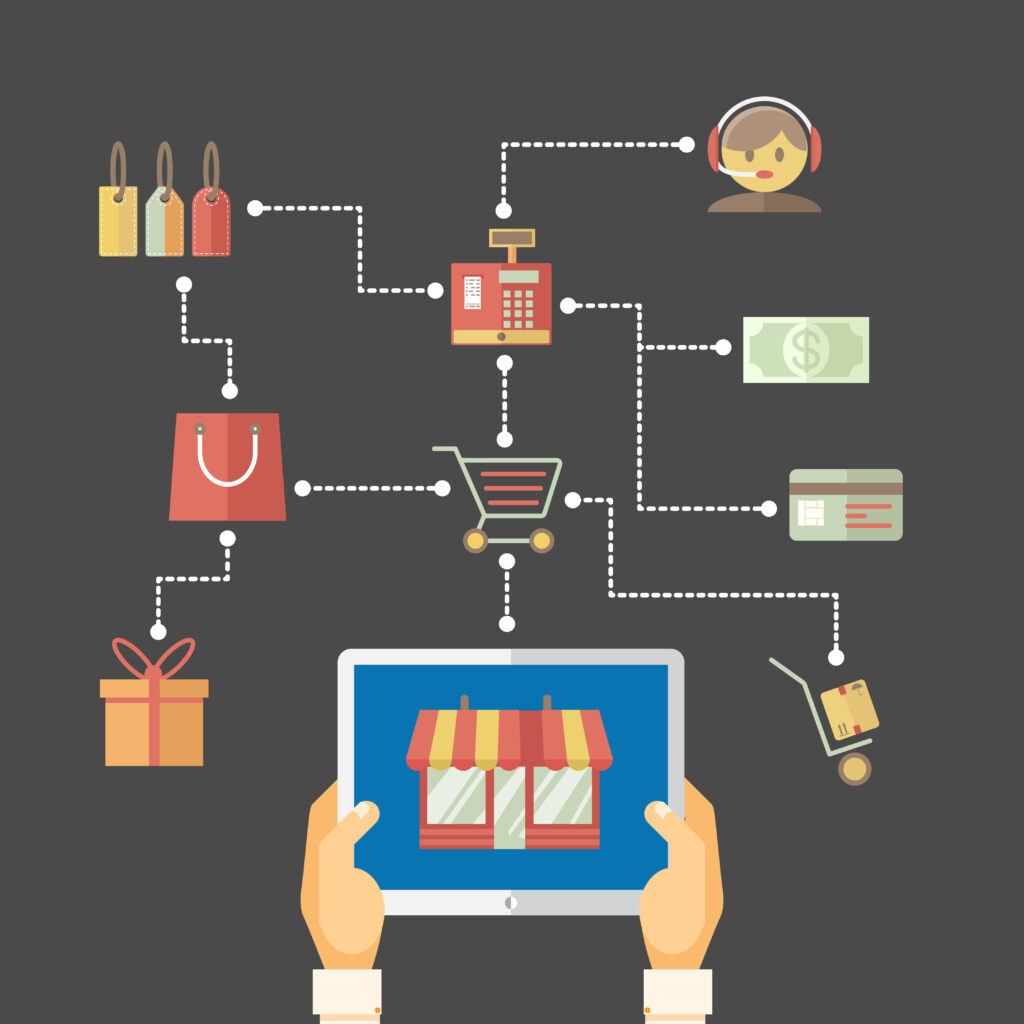Introduction
The eCommerce sector has experienced a sharp increase in popularity in recent years. The need for effective platforms to manage online stores has increased significantly as more and more businesses go online. Shopify has become a well-liked option for numerous companies, but one question remains unanswered: Is Shopify a marketplace facilitator? We’ll explore this subject in-depth in this post and reveal the answer to this query.
Table of Contents
ToggleWhy isn t Shopify a marketplace facilitator?
It is not thought of Shopify as a marketplace facilitator. A platform that gathers and submits sales tax on behalf of independent sellers is known as a marketplace facilitator. Shopify does not take part in the transactions or handle the collection and remittance of sales taxes, even though it offers businesses an online platform to sell their goods. Rather, it is the responsibility of individual Shopify merchants to manage their own tax liabilities.
Is Shopify a marketplace facilitator platform?
Shopify isn’t really a platform for marketplaces. Shopify is an e-commerce platform that, in contrast to conventional marketplaces like Amazon or eBay, enables companies to establish and run their own online stores. It gives business owners and retailers the resources and capabilities they need to organize and personalize their storefronts, keep track of goods and inventory, accept payments, and take care of client orders. Shopify does not function as a single marketplace where different vendors list their goods for sale; instead, it is a platform that helps individual businesses establish and expand their brands.
Is Shopify a third party facilitator?
In the context of operating as a marketplace facilitator, Shopify is not regarded as a third-party facilitator. Platforms or organizations that manage transactions and gather sales tax on behalf of third-party sellers are commonly referred to as third-party facilitators. On the other hand, Shopify functions as an e-commerce platform that lets companies create and run their own websites.

What platform is Shopify?
Shopify is an e-commerce platform that empowers businesses to create and manage their own online stores. It is not a traditional marketplace facilitator. Rather than operating as a centralized marketplace where multiple sellers list their products, Shopify provides individual merchants with the tools and infrastructure to establish their unique online presence. Merchants can customize their storefronts, manage inventory, process payments, and handle customer orders through the Shopify platform.
Shopify vs. Marketplace Facilitators
Key Differences
To further illustrate the distinction between Shopify and marketplace facilitators, let’s look at some key differences between the two:
Independence and Customization
Shopify gives businesses the freedom and flexibility to design their own online stores with a high level of personalization. On the other hand, marketplace facilitators give sellers access to a common platform and a restricted range of customization choices.
Transaction and Fulfillment Management
Store owners are in charge of order fulfilment and transaction management with Shopify. However, marketplace facilitators, who provide services like payment processing and fulfilment support, frequently manage these aspects on behalf of the sellers.
Sales Tax Collection
As previously stated, Shopify does not serve as a middleman for the purpose of collecting and remitting sales taxes. Shopify store owners are in charge of handling their sales tax liabilities. Nevertheless, according to state laws, marketplace facilitators usually have to collect and send sales tax on behalf of their sellers.
Visibility and Competition
Shopify stores operate independently, which means that store owners need to invest in marketing efforts to drive traffic and visibility. Marketplace facilitators, however, provide sellers with access to an existing customer base, although they must compete with numerous other sellers for visibility and sales within the platform.
Frequently Asked Questions (FAQ)
1. Can I use Shopify to sell on marketplace facilitator platforms like Amazon or eBay?
Yes, you can integrate you is Shopify a marketplace facilitator with various marketplace facilitator platforms using apps and integrations available in the Shopify App Store. This allows you to manage your inventory and orders across multiple channels seamlessly.
2. Do I need to collect and remit sales tax if I use Shopify?
As a store owner using Shopify, you are responsible for managing your sales tax obligations. This includes collecting and remitting sales tax based on the tax laws applicable in the jurisdictions where you have a tax obligation.

3. Can I create a marketplace facilitator-like platform using Shopify?
While Shopify is not a marketplace facilitator by default, you can create a multi-vendor marketplace using third-party apps and extensions available in the Shopify App Store. These apps enable you to add features and functionality to your store that allow multiple sellers to list and sell their products, transforming your store into a marketplace-like platform.
4. How do I differentiate my Shopify store from others on the platform?
Shopify offers a wide range of customization options, including themes, apps, and integrations that allow you to create a unique online store. Invest in branding, marketing efforts, and providing excellent customer service to differentiate your store from others on the platform.
5. Do I need any technical skills to set up a Shopify store?
No, technical knowledge is not required to set up a Shopify store. The platform is easy to use and provides a straightforward, sequential process to assist you in setting up and running your online store.
Conclusion
Is Shopify a marketplace facilitator to sum up, Shopify is not a marketplace enabler. It’s an eCommerce platform that lets companies set up and run their own standalone online stores. The degree of customization, transaction and fulfilment management, sales tax collection, and visibility are where Shopify and marketplace facilitators diverge most.

